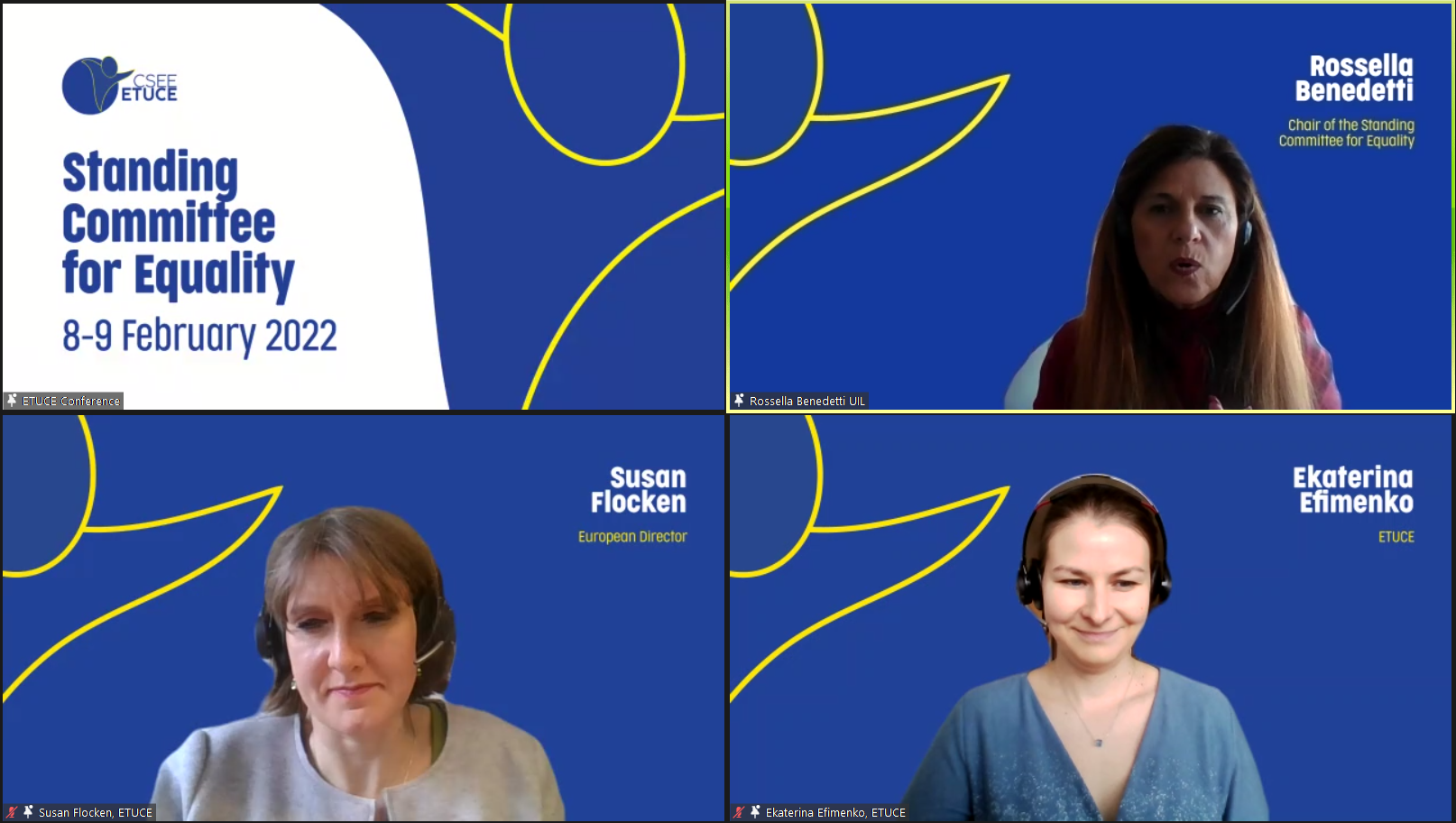ETUCE Standing Committee for Equality 2022: equality and inclusion for an attractive teaching profession
Published:
On 8-9 February 2022, more than 50 trade union equality experts across Europe gathered online for the annual meeting of the ETUCE Standing Committee for Equality, the consultative body to the ETUCE Committee that seeks to move forward the priorities and recommendations on equal opportunities set out in the ETUCE Work Programme and ETUCE Action Plan on Equality, Diversity and Inclusion. During the meeting, participants exchanged ideas and experiences on how to promote equal opportunities for quality education and attractiveness of the teaching profession.
Following the ETUCE Action Plan for Equality, Diversity, and Inclusion, and the Strategy for its Implementation, this year’s ETUCE Standing Committee meeting focused on the key role of equality and inclusion for improving the attractiveness and the status of the teaching profession and the provision of quality education in the European region, addressing among other things the teacher shortage and trade union renewal. Members discussed various challenges to achieving equality in the teaching profession and enhancing diversity in the education trade unions. Speakers from the ETUCE Secretariat, EI and ETUC enriched the discussion with their interesting contributions in the field of equality and human rights. Highlighting the importance of the European Union’s Pay Transparency Directive for workers and in particular for professions, like teaching, where a majority of workers are women, Esther Lynch, ETUC Deputy General Secretary, she explained that this legislation can significantly advance the fight for equal pay and stop the undervaluation of work carried out by women. In this respect, ETUC calls for support on the delivery of the legislation that supports trade unions in their fight for equal pay in collective bargaining in order to close the gender pay gap.
ETUCE member organisations presented a wide range of national good practices on the implementation of the ETUCE Action Plan on Equality, Diversity and Inclusion addressing special needs, transmission of democratic values and fight against racism, implementation of gender equality and eradication of sexual violence, to name a few. In smaller breakout groups, trade union equality experts further elaborated on the good practices and provided their feedback to the draft ETUCE Policy Paper on Raising the Status and Improving the Attractiveness of the Teaching Profession and the Main Resolution for the ETUCE Special Conference 2022. Members highlighted the issues of workload and increased work-related stress, with especially strong impact on women, the risks of digitalisation in education and blended learning for equality and inclusion, and pointed out that the casualisation and precarious working conditions in the sector strongly affect the quality of public education and push families towards private education or additional educational services deepening the existing socio-economic and other gaps among students.
Reflecting on the outcomes of the ETUCE research study on Mapping the Labour Market Trends and Trade Union Policies for Young Teachers and other Education Personnel, the Standing Committee members underlined the importance of ensuring that young members are given the space and meaningful role inside the unions and their work; including providing them with training on trade union issues and social dialogue.